- medlineplus.gov - Sleep Disorders
- psychiatry.org - What Are Sleep Disorders, Felix Torres, MD, MBA, DFAPA
- sleepfoundation.org - Treatments for Insomnia, Alexa Fry, Alex Dimitriu
- ncbi.nlm.nih.gov - Diagnosis and treatment of sleep disorders: a brief review for clinicians, Vivien C. Abad, MD, MBA, Christian Guilleminault, MD
- my.clevelandclinic.org - Common sleep disorders
- pubmed.ncbi.nlm.nih.gov - Making sleep easier: pharmacological interventions for insomnia. Lukas Frase, Christoph Nissen, Dieter Riemann, Kai Spiegelhalder
- solen.cz - Melatonin, prof. RNDr. Luděk Beneš, DrSc., doc. MUDr. Zdeněk Wilhelm, CSc.
- solen.sk - Medical care of patients with insomnia, Doc. RNDr. Magdaléna Fulmeková, CSc., PharmDr. Lucia Masaryková, PhD., PharmDr. Ľubica Lehocká, PhD., Mgr. Alena Matulová
Will only sleeping pills really help? The thorny road to undisturbed sleep
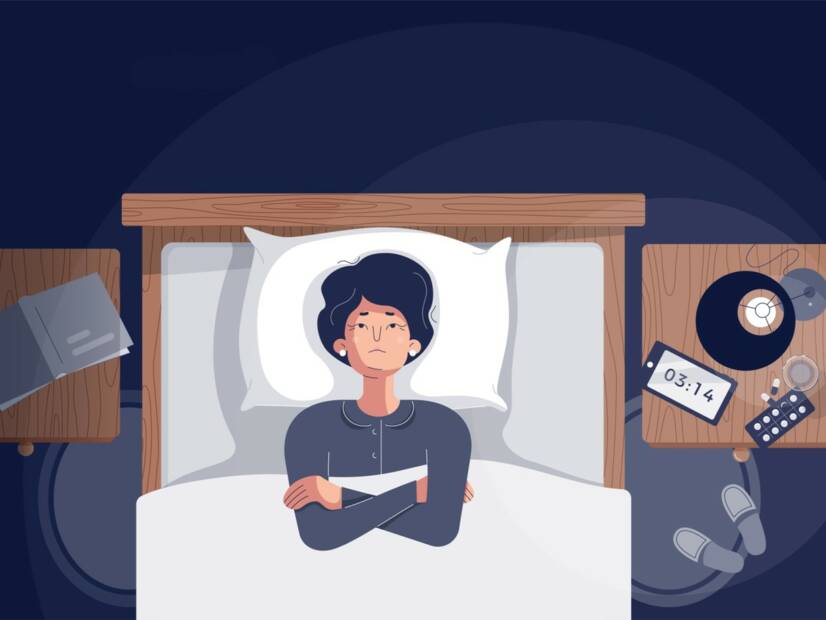
Photo source: Getty images
Is trying to get a good night's sleep an everyday problem for you? How do you change your sleep habits and when do you reach for medication?
Article content
We spend about a third of our lives sleeping, or at least trying to. What can thwart our efforts and how can we achieve quality sleep?
After all, it's about our health, not just our mental health.
Sleep is not just the expected pleasant state of mind when we lie down in bed after a full day. It is, above all, a state that is absolutely essential to our lives.
We are talking about a complex biological process during which the whole body and mind are regenerated. Sleep keeps us fresh and active during the day, ensures the functioning of vital processes, helps our body maintain health and protects it from the onset and development of diseases.
During sleep, there is a change in consciousness, but our brain and basic bodily functions remain active.
Sleep is a physiological, regularly recurring state of mind and body. It is characterized by a change in consciousness and sensory perception of the environment.
One sleep cycle consists of several stages. We speak of so-called sleep stages. For more detailed information, see the article on the different stages of sleep.
Although sleep is an important necessity in life and an important indicator of a person's physical and mental health, it is not a complete given for many. And this number of dissatisfied sleepers, or insomniacs, is constantly increasing.
Often you are wondering:
What are sleeping pills and what sleeping pills help?
What are non-addictive prescription or over-the-counter medications?
The statistics of rising consumption of medications to help with problems falling asleep or during sleep itself suggest so.
In Europe, the highest consumption of hypnotics and sedatives in 2020 was in the northern European countries. Sweden, Iceland and Norway ranked first, second and third respectively. In contrast, Austria, Germany and Italy ranked last.
Why is sleep important?
Sleep is a basic need of human existence. It is crucial for both the physical and mental aspects of life.
Without sleep, our lives are on the line. Literally.
Apart from the act of sleeping itself, other related aspects are also important. For example, the specific time at which a person sleeps.
The human body works in 24-hour intervals (cycles). Thanks to these, we know when to sleep. These intervals are called circadian rhythms, or simply put, our body's internal clock.
What is the circadian rhythm?
The role of the circadian rhythm is to control the processes in our body according to certain phases of the day. One process always takes place at a certain time and repeats itself in cycles, i.e. every 24 hours.
The word "circadian" comes from the Latin "circa diem". This translates to "approximately a day".
One of the most important parts of the circadian rhythm is the sleep-wake cycle. In this case, the body reacts to darkness and light. If it perceives a lack of light, it decides that it is time to sleep. This is why we begin to feel tired at sunset.
Another part of the circadian rhythm is, for example, the regulation of hormone production (testosterone), body temperature, blood pressure, digestive tract activity, etc.
Disruption of the circadian rhythm also has an impact on our health. Negative, of course. It affects mental and physical systems throughout the body.
The sun is a producer of blue light in the morning. This light is a signal to our bodies that it is time to get up and wake up. Nowadays it is very often mentioned in connection with electronics such as computers and telephones. These also emit blue light. They can therefore disrupt our circadian rhythm and cause difficulties in falling asleep.
In addition to sleep disturbances, unwanted disruption of circadian rhythms can cause a number of other problems, such as fatigue, difficulty concentrating, moodiness and uncontrolled emotions, headaches and digestive problems.
How long do we need to sleep?
Another aspect that directly affects the overall quality of sleep is the length of sleep. Each of us is different and unique. We also differ in how long we need to sleep.
It's even related to our age. According to the U.S. National Sleep Foundation, the 2014 sleep duration recommendations for different age groups are as follows.
A tabular list of recommendations for sleep duration over a 24-hour cycle
| Developmental stage | Number of hours of sleep |
| Infant (4-11 months) | 12-15 hours |
| Toddler (1-2 years) | 11-14 hours |
| Preschool age (3-5 years) | 10-13 hours |
| Younger school age (6-13 years) | 9-11 am |
| Older school age (14-17 years) | 8-10 hours |
| Young adults (18-25 years) | 7-9 hours |
| Adults (26-64 years) | 7-9 hours |
| Older adults (65+) | 7-8 hours |
In addition to age, other factors influence optimal sleep duration. For example, lifestyle, general health, and how long we are used to sleeping.
What are the consequences of insufficient sleep quality and duration?
We've already talked about why sleep is important. But what health risks do we face in practice if we have a regular or long-term lack of quality sleep? Let's take a look at them.
A brief overview of the symptoms of sleep deprivation in the table below
| Mental disorders | Diseases and disorders of bodily functions |
|
|
| In more severe cases | |
|
Looking at this list, we definitely want to put ourselves in the group of people who don't have any significant sleep problems.
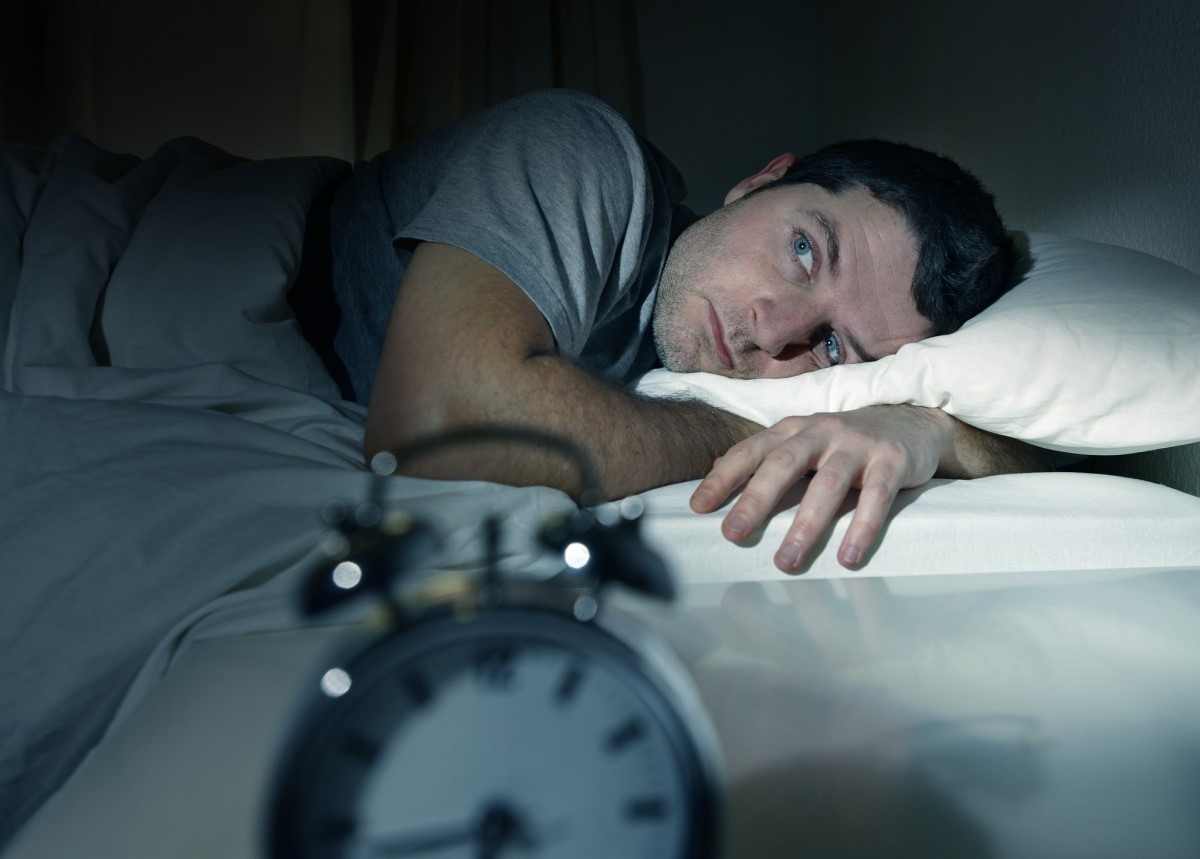
But what should we do if we suspect or (in a worse case scenario) are sure that something is wrong with our sleep after all?
It's important to remember that all of us may sleep poorly or inadequately from time to time. This may be due to various external influences (weather), health problems (short-term illnesses) or stressful periods in life. In the case of short-term and transient sleep disorders, there is no need to panic.
Caution should be exercised in the case of long-term sleep disturbances or disturbances with no apparent cause.
Is the sleep disorder affecting me? The answer is revealed by a short test...
Let's take a test now.
- Is your sleep time longer than 30 minutes?
- Do you wake up several times a night and then have trouble falling back asleep?
- Do you wake up in the early hours of the morning?
- Do you feel sleepy during the day or do you need a nap several times a day?
- Are you unable to perform daily activities because of fatigue?
- Do you have trouble concentrating at work/school/home?
- Do you have problems with memory?
- Are your reactions delayed?
- Do you have problems controlling your emotions?
- Has your partner/family member told you that you snore loudly, gasp, make choking noises or stop breathing for a while while you sleep?
- Do you have pinching or burning sensations in your feet and hands when you try to fall asleep?
- Do you often have twitching in your legs and arms during sleep?
Did you answer yes to one or more of the above questions?
So it is likely that your sleep disorder is affecting you in some way.
A sleep disorder is any problem
- with the quality of sleep
- with the correct timing of sleep
- but also a lack of sleep.
The onset and persistence of sleep disorders are often closely related to psychological and physical problems. Sleep disorders can be a symptom of an existing illness or, conversely, can contribute to or exacerbate the development of an illness.
Did you know that there are currently more than 80 different types of sleep disorders?
The most common and widespread sleep disorder is insomnia. For more information about this disorder and its description, see the article on insomnia.
For information on other very common sleep disorders, see the article:
How long sleep is needed? What is REM, non-REM and why we need to dream
Some facts about insomnia (table)
| Insomnia is more common in women than men. |
| Insomnia is usually a long-term condition. Some people have it for more than 2 years. |
| The symptom profile of insomnia changes with age. As people get older, night wakings become more frequent and the subjective perception of poor sleep decreases. |
| Up to approximately half of all diagnosed forms of insomnia are the result of an existing psychiatric illness. |
Sleep disorders also include (perhaps surprisingly) breathing problems occurring during sleep. We talk about sleep apnoea, in which a person stops breathing for 10 seconds or more during sleep.
Another sleep disorder is a neurological condition called restless legs syndrome, which is characterised by the urge to move the lower limbs. It is most pronounced in the evening and at night, which understandably disturbs sleep.
What causes sleep disturbances?
It probably comes as no surprise that there are several factors that cause sleep disorders.
Let us list at least some of them. They are divided into subcategories.
a) Diseases and health problems (e.g. asthma, heart problems, lung disease, nervous disorders, hormonal disorders) - These impair the quality of daily life. They have various manifestations and symptoms that affect, impair or prevent sleep.
A typical example of a symptom adversely affecting sleep is pain or cough.
b) Mental problems and illnesses (e.g. depression, anxiety) - Sleep problems are a major symptom of many mental illnesses, especially those related to emotions.
c) Genetics - Some sleep disorders are hereditary, e.g. narcolepsy.
d) External factors - Noise, light, temperature, inappropriate sleep environment.
e) Medications - Some medications interfere with sleep, e.g. psychostimulants, pseudoephedrine (part of decongestants), hormones (oral contraceptives), high blood pressure medications (beta blockers), steroid hormones (prednisone), weight loss medications, some antidepressants.
Sleep is also affected by illegal substances such as cocaine, amphetamines and methamphetamines.
f) Aging - As we age, the length of sleep needed decreases, as does the depth of sleep (sleep is shallow). More than half of older adults over 65 suffer from some kind of sleep disorder.
g) Lifestyle - Alcohol, caffeine, nicotine, eating before bed, irregular daily routine (working night shifts), stress, emotional strain.
Have you rationally assessed that you are likely to be affected by one of the sleep disorders? Gather the last of your energy and invest it in finding ways to improve your sleep.
The first step to better sleep
At the very beginning of solving your sleep problems, you need to find the cause. Or at least try to.
If your sleep problem seems to stem from a health problem or illness, you need to start addressing the cause and ideally visit a doctor or at least a pharmacy. Addressing the root cause of your sleep problems will return you to undisturbed rest.
You should be especially careful if the cause of your sleep problems is related to your respiratory system (the aforementioned sleep apnoea), nervous disorders (restless legs syndrome) or psychological illness. In such situations, self-medication for poor quality sleep is not appropriate. A consultation with a doctor is necessary.
If you suspect that your sleep problems are caused by certain medications, do not discontinue treatment under any circumstances. This is especially true for medications that you are taking on the advice of your doctor and for a long period of time. In such cases, discuss your sleep problems with your doctor.
But what should you do if your sleep disturbance is not caused by a medical problem?
You can take the initial steps to remedy your sleep disorder on your own, without the need for professional intervention and assistance. So start by preparing yourself and your home.
An overview of basic measures to improve sleep quality (table)
| How to adjust your lifestyle | How to adapt where you sleep |
|
|
All these measures are collectively called sleep hygiene.
In addition to sleep hygiene, we include cognitive behavioural therapy as one of the basic regimens in the treatment of sleep disorders.
What is cognitive behavioural therapy?
This widely used treatment for sleep disorders helps to improve the quality of sleep by modifying bedtime activities and habits while also changing the thinking that is also involved in the development of these disorders.
Cognitive behavioral therapy consists of two parts.
- Cognitive component - The first part of therapy teaches you how to recognize negative attitudes and beliefs contributing to sleep disorders and how to change them. Example: anxiety-reducing thinking while falling asleep, etc.
- Behavioral component - The second part of therapy shows you how to avoid habits and behaviors that lead to insomnia. It teaches you how to replace them with better sleep habits. Example: limiting sleep during the day, using bed only for sleep, etc.
Therapy is conducted under the guidance and supervision of a psychologist with relevant experience.
In all of the above cases, we are talking about non-pharmacological treatment. Non-pharmacological treatment can be the initiating treatment for sleep disorders, the so-called first-choice treatment. However, it is almost always used as a complementary treatment to pharmacological (drug) treatment.
First aid from the pharmacy - help in the form of medicines, tablets, food supplements
The patient's next step in dealing with sleep disorders is to go to the pharmacy. It is in the pharmacy that pharmacists can consult with you about the problem and give you qualified advice on the correct course of treatment.
What are the most common questions a pharmacist asks about sleep disorders?
- What are your specific sleep problems?
- How long have your sleep problems persisted?
- What do you think is causing your sleep problems?
- What circumstances led to the development of your sleep problems?
- Can you define the factors that you think improve or worsen your sleep?
- Have you tried to solve your sleep problems? If so, in what way?
- Have your efforts to improve your sleep been successful?
- Have your sleep problems affected your psyche?
- When and what do you usually eat before going to bed?
- What does the room you sleep in look like?
- Do you engage in regular physical activity?
After a confidential discussion with you, your pharmacist will evaluate the circumstances and severity of the situation. He or she will inform you of treatment options, recommend non-pharmacological treatments, or identify a visit to the doctor as the best option for your situation.
One of the pharmacist's roles is to prevent the unnecessary use of hypnotics (drugs used to treat sleep problems) by patients.
Only over-the-counter medications or dietary supplements can be selected at the pharmacy without a visit to the doctor. These products are mainly used to relieve nervous tension, stress and to help with milder forms of sleep disorders.
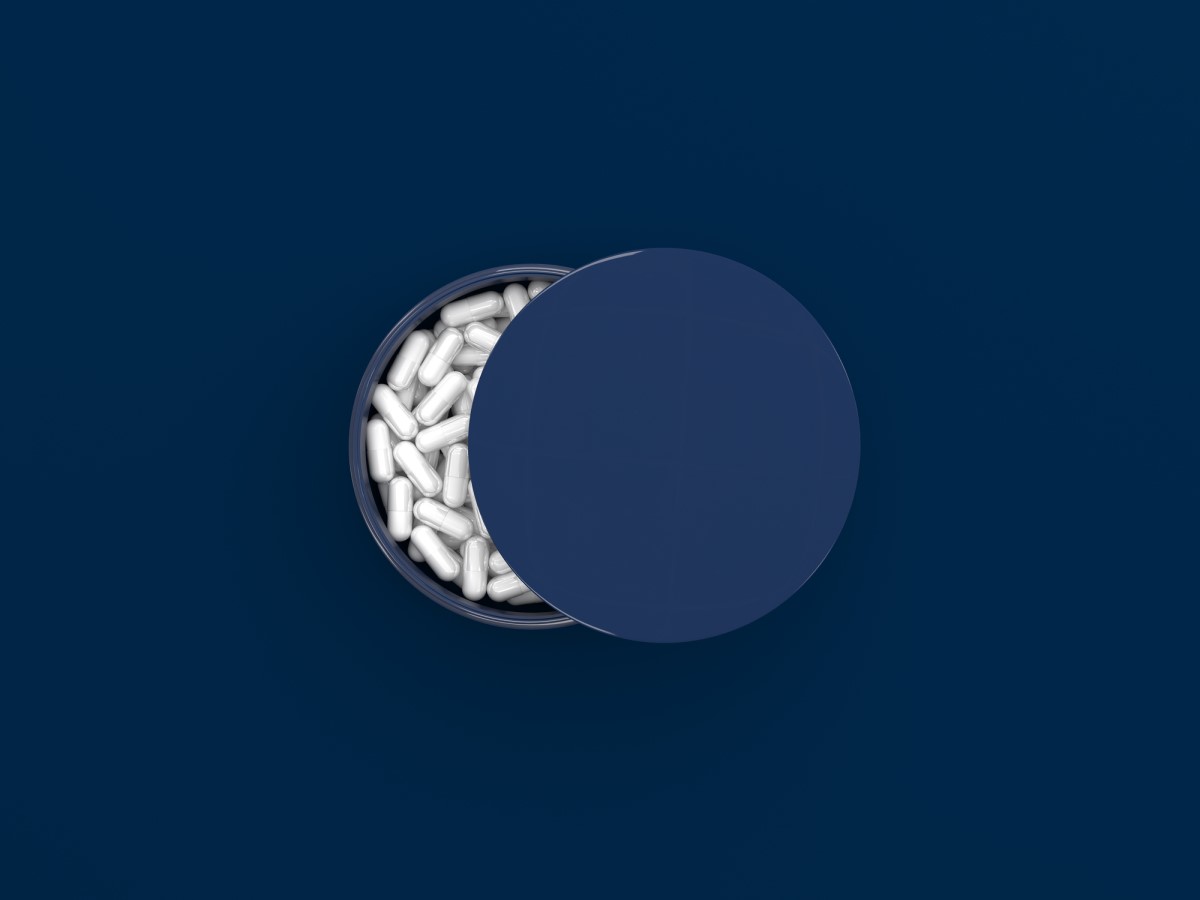
Table of over-the-counter medicines for the treatment of sleep disorders
| Phytopharmaceuticals (herbal medicines) | Valeriana officinalis Melissa officinalis Lavandula officinalis Humulus lupulus Passiflora incarnata Hypericum perforatum (St. John's wort) Mentha piperita - peppermint (always in combination with valerian to treat sleep problems) |
| Over-the-counter medicines, dietary supplements | Melatonin |
From phytopharmaceuticals, there is a choice of teas, single or combined herbal preparations in the form of oral drops, tablets and capsules.
Increased caution is required when taking phytopharmaceuticals. They may interact with other medications you are currently taking (e.g. St John's wort has a high interaction potential with many drugs).
Melatonin is the body's natural substance, a hormone produced in a part of the brain called the pineal gland. Its main role is to transmit information about the rhythm of light and darkness to the whole body. Melatonin is produced at an increased rate in the evening, as its production increases as light intensity decreases. It induces feelings of drowsiness, thus signalling to the body that it is time to go to sleep.
By measuring melatonin levels, it is possible to assess which phase of the 24-hour cycle the person being examined is in and whether they are suffering from a circadian rhythm disorder.
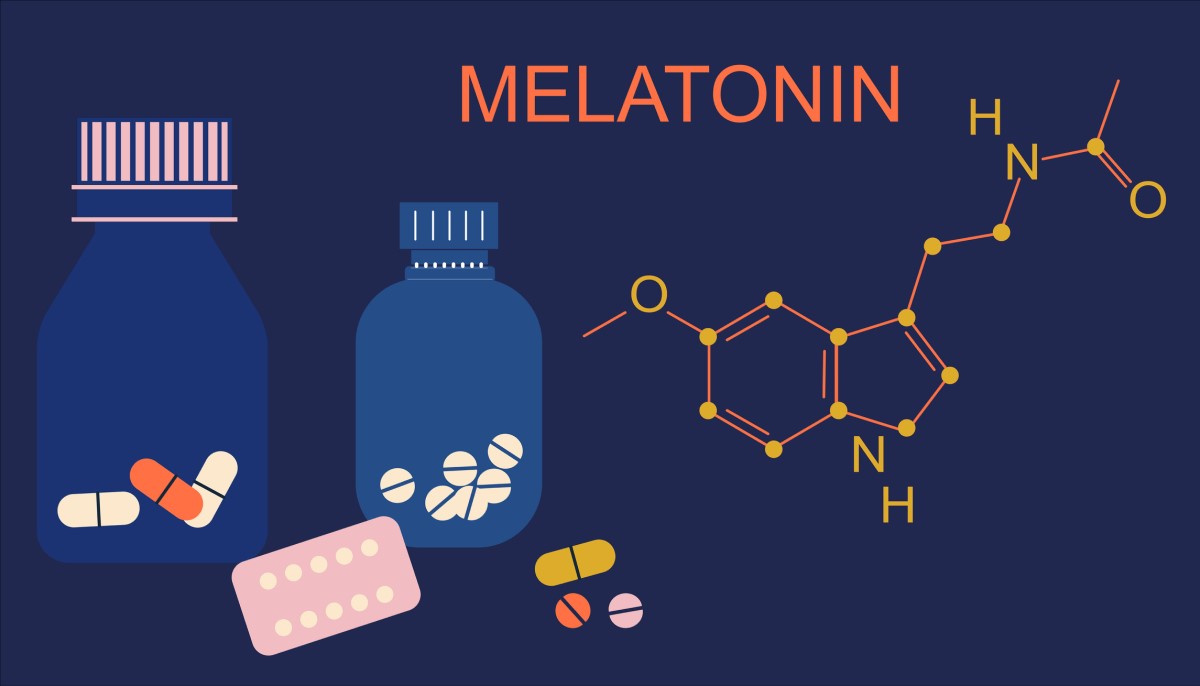
A disruption in the production of the natural sleep hormone (as melatonin is sometimes called) is associated with a higher incidence of sleep disorders. Its reduced production is characteristic, for example, of older age. Melatonin levels can be reduced by certain drugs (acetylsalicylic acid, ibuprofen, beta-blockers, diazepam, etc.) and by various habits (alcohol, caffeine, tobacco).
Certain vitamins, minerals and foods of plant origin can also naturally affect melatonin production. For example, oatmeal, cereal sprouts, barley, rice, bananas, tomatoes, B vitamins, magnesium or calcium.
By giving supplemental melatonin in the form of medication or dietary supplements, sleep can be induced or its onset can be accelerated. These products should always be taken only for a short period of time.
The optimal dose of melatonin is 1-3 mg depending on the body's response. It should be given approximately 60 minutes before sleep.
.jpg)
When do I need to see a doctor?
In cases where non-pharmacological treatment or treatment with over-the-counter products is not sufficient or not available to eliminate sleep disorders, a doctor's help is needed.
Your doctor must also assess your condition if your sleep disorders are long-standing, severe and significantly limit your daily functioning.
Sleep disorders, especially insomnia, are treated with hypnotics (sometimes sedatives). When treating with hypnotics, a few basic principles apply.
- They are used only to temporarily modify the symptoms of sleep disorders.
- Their use is only short-term (3-4 weeks maximum). For chronic forms of sleep disorders, treatment of the cause is necessary.
- They are used at the lowest dose that can produce an effect in a given patient.
Discontinuation of treatment is gradual, not abrupt. This prevents relapse and more severe sleep disturbance.
The whole range of hypnotics is divided into three generations.
An overview of the generations and individual examples of hypnotics in the table below
| Generations | Drug group | Example of drug |
| Generation I | Barbiturates (no longer used) | phenobarbital, alobarbital |
| Generation II | Benzodiazepines - non-selective benzodiazepine receptor agonists | midazolam, cinolazepam, diazepam, nitrazepam, flunitrazepam |
| Generation III | non-benzodiazepine hypnotics - selective w1-benzodiazepine receptor agonists | zolpidem, zopiclone, zaleplon |
Barbiturates
Currently no longer used drugs with hypnotic effect. Their use is inappropriate from a safety point of view. They have been replaced by more effective and safer drugs.
Their main drawbacks are their narrow therapeutic index (difficulty in determining the exact effective dose), high potential for interactions, lack of a suitable antidote. They also cause marked respiratory and cardiac depression, there is a risk of dependence and tolerance, as well as a risk of abuse.
Benzodiazepines
Together with third-generation hypnotics, they are currently the most widely used hypnotics in medical practice - the drugs of first choice.
In addition to their hypnotic effect, they have sedative, anxiolytic (anti-anxiety), skeletal muscle relaxant and anticonvulsant effects. They are also addictive and tolerant. In high doses, they depress respiration and cardiac activity.
Benzodiazepines must not be combined with alcohol due to accentuation of respiratory and cardiac depression, which can be life-threatening.
The choice of a particular benzodiazepine is guided by the type of sleep disorder and the pharmacokinetic properties of the drug.
Non-benzodiazepine hypnotics
Due to their selective action, they have fewer side effects than benzodiazepines. They do not develop dependence or tolerance (as with non-addictive sleeping medications).
Sleep can also be induced by some drugs used primarily as antidepressants, but they are also indicated for sleep disorders (e.g. trazodone).
Some antihistamines (allergy drugs) are sometimes used for sleep disorders. Their sedative effect is exploited. E.g. promethazine, diphenhydramine, bisulepin, etc.
What does the basic scheme of treatment of sleep disorders and the use of medication look like? Let's divide it into different age groups and specific patient groups.
A tabular overview of the pharmacological treatment of sleep disorders in different patient groups
| Adults | ||
| Non-pharmacological treatment | Alone or in combination with medication | |
| Pharmacological treatment | Benzodiazepines | All |
| Non-benzodiazepine hypnotics | All | |
| Melatonin | ||
| Antidepressants | Trazodone | |
| Antihistamines | Diphenhydramine | |
| Children and adolescents | ||
|
Non-pharmacological treatment
Alone or in combination with medication | Alone or in combination with medication | |
| Pharmacological treatment | Benzodiazepines | Only on the advice of a physician |
| Non-benzodiazepine hypnotics | Only on the advice of a physician | |
| Melatonin | After consultation with a physician, only products intended for children and adolescents | |
| Antidepressants | On medical advice only | |
| Antihistamines | Only on doctor's recommendation | |
| Elderly patients (aged 65 years and over) | ||
| Non-pharmacological treatment | Alone or in combination with medication | |
| Pharmacological treatment | Benzodiazepines | Only on the recommendation of a physician |
| Non-benzodiazepine hypnotics | Only on the advice of a physician | |
| Melatonin | ||
| Antidepressants | On physician's recommendation only | |
| Antihistamines | Only on doctor's recommendation | |
| Pregnancy | ||
| Non-pharmacological treatment | Alone or in combination with medication | |
| Pharmacological treatment | Benzodiazepines | Only on the advice of a physician |
| Non-benzodiazepine hypnotics | Only on the advice of a physician | |
| Melatonin | Only on doctor's recommendation | |
| Antidepressants | On physician's recommendation only | |
| Antihistamines | Only on doctor's recommendation | |
Sleep plays a vital role in our lives. Make sure it is one of your top priorities. It leads to a healthy and quality life.
Read also: Insomnia in children: babies, children and puberty.
Interesting resources
Related
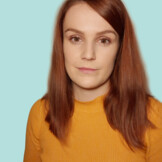
PharmDr. Marianna Forgáčová
Doctor of Pharmacy
I graduated from the Faculty of Pharmacy of Comenius University in Bratislava with a 5-year degree in Pharmacy, with a degree of Mgr. After graduation I worked at the State Institute for Drug Control in the section of drug registration from 2016, where I stayed for 4 years. During my employment I completed my rigorous studies again at the Faculty of Pharmacy in Bratislava. This time with the degree of PharmDr. Since 2020, I have been employed at Essity Slovakia s.r.o., where I work as an expert in registration processes and legislation related to medical devices. I consider my studies and practical experience as a sufficient prerequisite for providing professional and relevant information on medical topics. In general, I am most interested in the topics of medicines, pharmaceuticals or medical devices, or in legislation and registration issues in the field of pharmacy.
View all articles by the same authorThe aim of the portal and content is not to replace professional
examination. The content is for informational and non-binding purposes
only, not advisory. In case of health problems, we recommend seeking
professional help, visiting or contacting a doctor or pharmacist.









